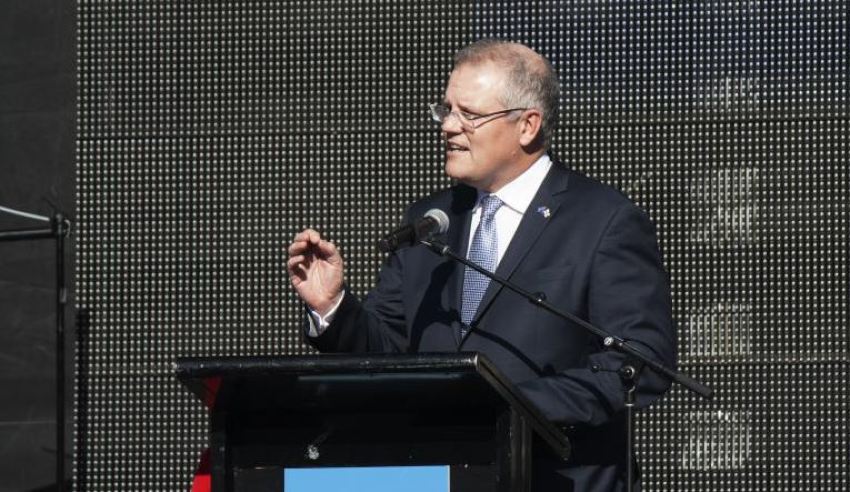Australia and its allies should avoid countering Beijing’s influence in the Indo-Pacific by emphasising co-ordinated action among liberal democracies, according to analysts from the US Studies Centre.
To continue reading the rest of this article, please log in.
Create free account to get unlimited news articles and more!
Prime Minister Scott Morrison has anchored his foreign policy discussions with G7 leaders on the need for like-minded liberal democracies to form a coalition against the evolving threat from the Chinese Communist Party (CCP), endorsing US President Joe Biden’s approach.
But according to the United States Study Centre’s Ashley Townshend, director, foreign policy and defence, and Susannah Patton, research fellow, foreign policy and defence, this approach risks isolating smaller Indo-Pacific nations facing similar challenges from Beijing.
“[Rallying] the world’s democracies should not be the organising principle of American or Australian strategy in the Indo-Pacific,” they write.
“Morrison should use his meeting with Biden to press for an Indo-Pacific strategy that can generate buy-in from small- and medium-size countries across the region who want a strong US presence, but who won’t be persuaded by a strategic narrative based on democratic values.”
Townshend and Patton claim that the values-based approach is a departure from Australia’s “pragmatic foreign policy tradition”, which has sought cooperation with any nation sharing common geopolitical interests in the region.
“Rather than focusing on these shared goals, Morrison’s regional vision rests on a different logic. His speech recalled the active co-operation among ideologically like-minded countries that characterised the Cold War struggle in Europe,” the analysts continue.
The pair state that Prime Minister Morrison’s strategy hinges on convincing the Indo-Pacific region of the superiority of the liberal democratic system.
“It’s a refashioning of the strategic playbook that underpinned 20th century competition with the Soviet Union. And it entails a similarly sweeping goal ‘to reinforce, renovate and buttress a world order that favours freedom’,” Townshend and Patton add.
“But it’s the wrong approach for the Indo-Pacific today.”
This strategy, they write, “can only unite a narrow coalition” in the Indo-Pacific, with the pair stressing that unlike Europe, the region is home to diverse ideologies and systems of governance.
“Indeed, many of the US and Australia’s most important regional partners when it comes to competing with China – such as the Philippines, Singapore, Vietnam and even India – fall outside the liberal democratic club,” the analysts claim.
“Most of the region is sceptical about endorsing Biden’s values-based strategy, even as they share deep concerns about the nature and purpose of Chinese power.”
Such nations are described by the analysts as being “largely agnostic to the language of human rights and democracy promotion”.
“Explicitly defining strategic competition in ideological terms is likely to create distance between the world’s democracies and the regional countries that Washington wants to assist,” they add.
The pair also cast doubt over the United States’ capacity to lead an Indo-Pacific coalition, assessing that it cannot leverage “unparalleled military and economic weight” as it did during the values-based Cold War period.
“Today, this is no longer the case. With its share of global economic output falling from 40 per cent to less than 25 per cent since the 1960s, and with a military that is globally overstretched, America must now navigate a multipolar world,” Townshend and Patton continue.
“This requires a more flexible approach than an emphasis on the language of liberal democracy allows.”
Townshend and Patton call on the US to shift its philosophy from “competition between systems to competition for influence”.
“It must persuade regional countries it understands and shares their interests. After all, China has expanded its own influence precisely because its partners have seen its assistance as supporting their national development agendas,” they observed.
The pair claim Prime Minister Morrison should urge Washington to foster stronger relationships with smaller Info-Pacific nations, particularly key “hedging” countries like Indonesia, Vietnam and the Philippines.
According to the analysts, the US and its allies should also assure Indo-Pacific nations that it plans to “contribute to and benefit from” the regional economy.
“This would not preclude the US from co-operating with liberal democracies or advocating human rights principles,” Townshend and Patton add.
“But it would enable regional countries to support discrete aspects of the US agenda, for example on maritime security or infrastructure standards, even if they remain unwilling to wholly align themselves with Washington’s regional priorities.”
The analysts conclude: “Australian security depends on the sustainability of America’s presence in the Indo-Pacific. Rather than echoing Washington’s thinking, Morrison should urge Biden to adopt a strategy for regional influence that can succeed.”
Get involved with the discussion and let us know your thoughts on Australia's future role and position in the Indo-Pacific region and what you would like to see from Australia's political leaders in terms of partisan and bipartisan agenda setting in the comments section below, or get in touch with
Charbel Kadib
News Editor – Defence and Security, Momentum Media
Prior to joining the defence and aerospace team in 2020, Charbel was news editor of The Adviser and Mortgage Business, where he covered developments in the banking and financial services sector for three years. Charbel has a keen interest in geopolitics and international relations, graduating from the University of Notre Dame with a double major in politics and journalism. Charbel has also completed internships with The Australian Department of Communications and the Arts and public relations agency Fifty Acres.

 Login
Login








